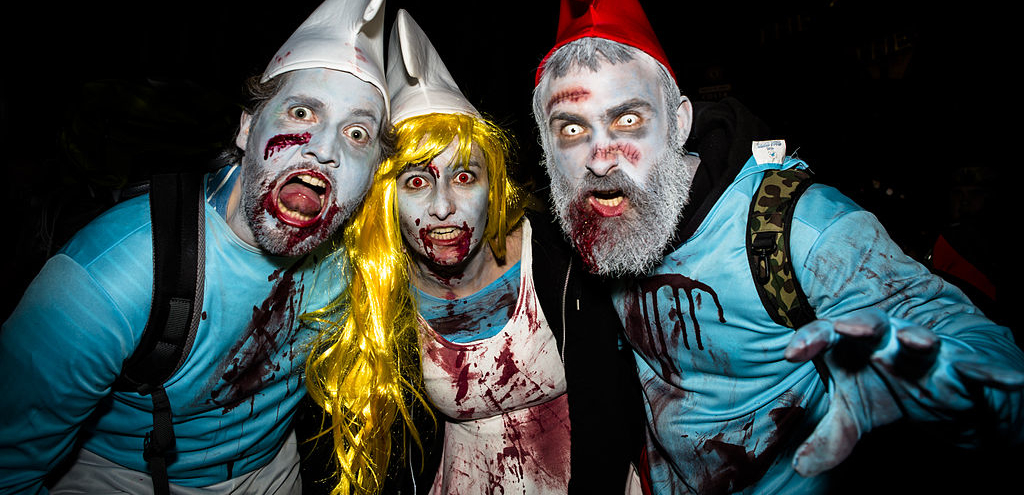
By Kimberly McGuinty
“Billy Jack Gaither, Lawrence “Larry” King, Mark Carson, Islan Nettles….” The AUM Gay Straight Alliance’s Hate Crimes Vigil held on Feb. 4 begins with a solemn reading by Dr. Paul Hard of the names of victims lost to hate crimes. Hard is the group’s faculty sponsor and a local champion of the Lesbian, Gay, Bisexual, Transgender, Queer community. We have just finished watching a “Frontline” movie on the brutal slaying of Billy Jack Gaither, the man whose memory the hate crimes vigil was established in honor of, just weeks after he was killed. The documentary relates how the man was stabbed, set afire and finally bludgeoned to death with an axe handle as he tried to escape his attackers. The other attendees and myself collect ourselves and prepare for the next part of the evening. We are each provided with a picture of one of the victims and a small battery operated candle, as we file out of the building and into the rain. Conversation is muted as we walk to the flagpole where we will lay our photos. We take turns reading the name of the victim we hold, and placing our cards one by one at the base of the flagpole. Hard then asks us to share a thought or prayer for victims named, unknown and to come. We pray, and disperse.
I meet with Hard later in the week to get his thoughts on the vigil. I inquire about his first realization of hate crimes against LGBTQ individuals. “You would see kids bullied at school all the time.” Hard says. “Then hearing family members talking, even advocating gay bashing .He describes the tendency of victims to withdraw in response to these interactions, an action, which unfortunately leaves them vulnerable. I ask him what the wider community should take away from the hate crimes vigil. “There are a lot of people who would say there’s no such thing as homophobia, no such thing as hate crimes against the LGBTQ community. To the point that the legislature has resisted adding LGBTQ wording to the hate crimes bill.” Hard says that this is something the LGBTQ community considers a priority, as hate crimes carry a heavier sentence than other violent crimes. When asked what message he would leave for the world, should he be the victim of a hate crime, he replies, “In December I bought a matching grave marker. It says two things: ‘Loving husband’ and a private message to my spouse. You can be a bigot of any sort and deny that another person is of worth, claim that we are worthless or worth less, but it takes a human to have a relationship. I am a human being in relation to other human beings.”

A few days later, on Feb. 15, I attend Alabama’s sixteenth statewide hate crimes vigil downtown which is fittingly held in the civil rights museum. The vigil , too, begins with a roll call of victims. There is a decidedly less oppressive mood here, however, as the LGBTQ community has enjoyed a small victory since students at AUM gathered to remember hate crime victims. Though the gay marriage ban has been lifted, we are reminded that there are many areas in which improvements can be made. There are still many policies that purport the idea that LGBTQ individuals are less than human. Among the speakers are representatives from the Southern Poverty Law Center, the Human Rights Campaign and the Alabama Legislature. Representative Patricia Todd takes the floor toward the end of the service to talk about legislation she is introducing in the upcoming session that would include LGBTQ community members in anti-discrimination legislation. Currently, there is no such protection.
The thread that connects these events seems to be one of reluctant hope. While victories are being won, there are still many areas in which the LGBTQ community is unfairly denied the same rights and protections as their fellow humans. The message echoed by many at the state vigil is tragic and clear, that we do not have to continue these vigils for new victims in the years to come.
Photo Courtesy of Kimberly McGuinty



The message you convey could not be expressed any more clearly. Would love to receive a copy of this thoughtful and important story. It demonstrates the importance of the alliance and the awareness it inspires, the courage of its members, and the tragedy of crimes born of ignorance and fear driven hatred.